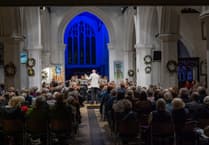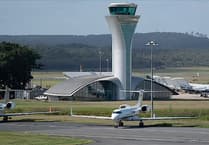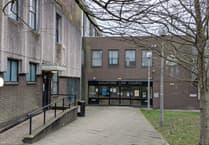YOUNGSTERS from Woking were among the 27 million people who flocked to the British Empire Exhibition over a six-month period in 1924, as featured in this week’s Peeps into the Past.
The exhibition was held at Wembley Park in London, and it aimed to draw attention to the raw materials found in Britain’s empire, and open new markets for Dominion and British products.
Among those who visited were children from several Woking schools and its railwaymen’s orphanage in Oriental Road, Maybury.
The Southern Railway and later British Railways’ staff magazines regularly reported on life at the home for children whose fathers had been killed or injured at work, and whose families were unable to look after them.
The July 1924 edition of Southern Railway Magazine reported: “Under the guardianship of Mr AE Smith, the superintendent of the home, and the chairman of the orphanage committee, Mr Radmoore, the party arrived at Woking Station soon after 8am, where, with scenes of great excitement, they joined other children from the schools in the district, and entrained at 8.20am.
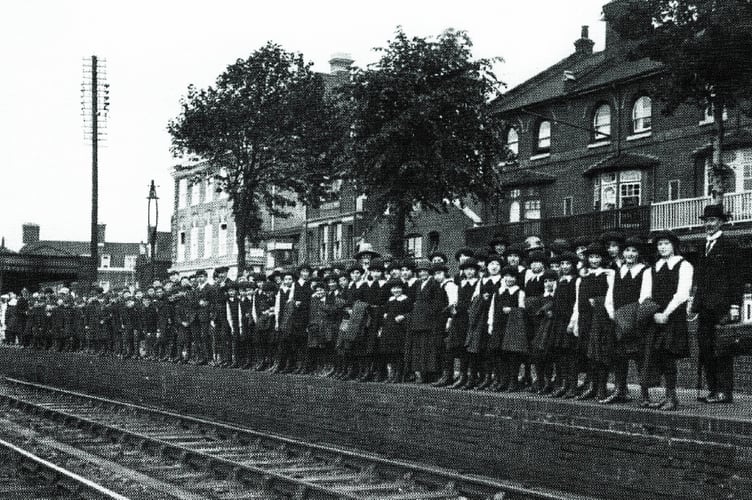
“The train steamed out amid cheers with its load of 1,000 children, and from the moment of departure till the arrival at Wembley Station a continuous chorus of merry juvenile voices kept busy at every song they knew, that even the sleepiest of railway sleepers must have turned in its bed and wondered what was being carried overhead.”
Once there, the party made its way to a lake where eight motorboats took the children past Wembley Stadium and displays the article described as: “the shores of the Gold Coast, Canada, South Africa, India and many other places that evoked wide-mouthed interest”.
After “a hearty lunch”, the party visited the exhibition’s Southern Railway stand, where “two representatives of the company earned the heartfelt thanks of the kiddies by kindly looking after their coats and capes, which made it ever so easier for them to get about.”
At each of the “pavilions” the children were given 20 minutes to look around. The report added: “This gave them plenty of freedom and at the same time kept them from getting lost.
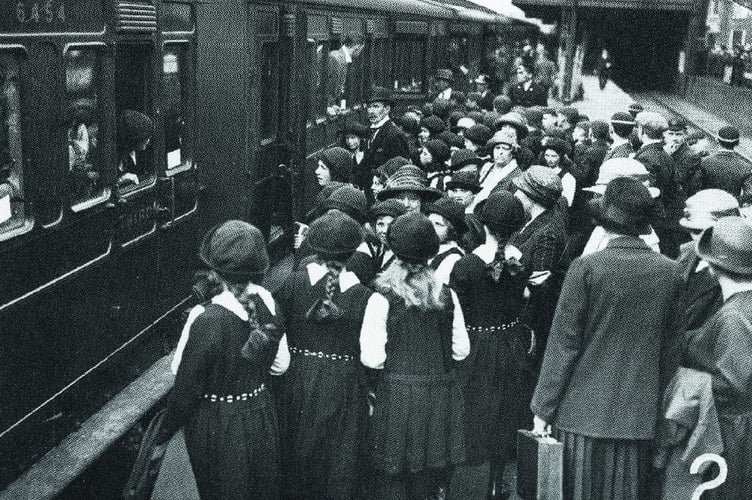
“Notebooks and pencils were provided so that they could jot down things of interest. In the South African pavilion, each of them received two large apples, to their evident enjoyment.”
At 4.15pm, tea was taken and then the party split into small groups, with many visiting an amusement park where “the scenic railway proved a great attraction”.
The report concluded: “The departure hour soon arrived and the little ones were quickly packed in their train, and eventually reached Woking station, tired out but thoroughly happy, and feeling grateful for the generosity of Sir Herbert Walker [then general manager of the Southern Railway], through whose kindness they had been enabled to pass such an interesting and joyful experience.”
My thanks to Barry Coom, who has a collection of Woking orphanage-related articles that were published in railway staff magazines over many years.
The orphanage came to Woking in 1909 and closed in 1989. The site today has been developed into accommodation for older people, many whom worked on the railways.
If you have some memories or old pictures relating to the Woking area, call David Rose on 01483 838960, or drop a line to the News & Mail.
David Rose is a local historian and writer who specialises in what he calls “the history within living memory” of people, places and events in the west Surrey area covering towns such as Woking and Guildford. He collects old photos and memorabilia relating to the area and the subject, and regularly gives illustrated local history talks to groups and societies. For enquiries and bookings please phone or email him at: [email protected]


